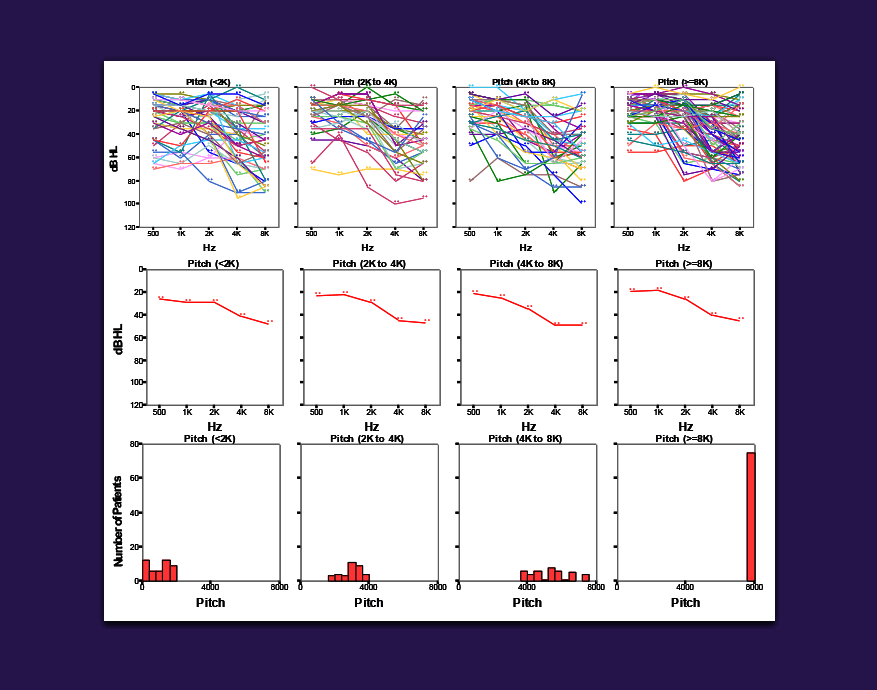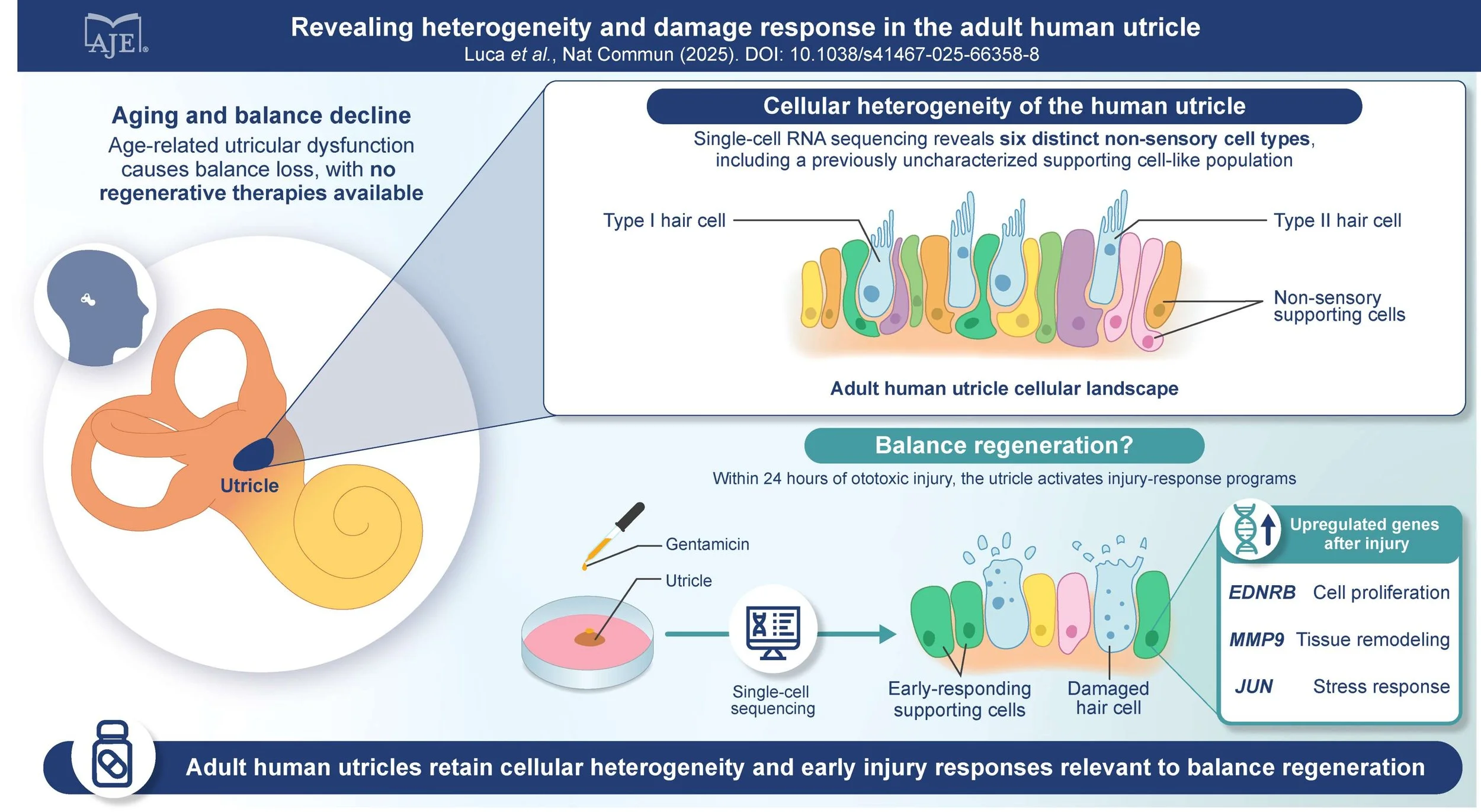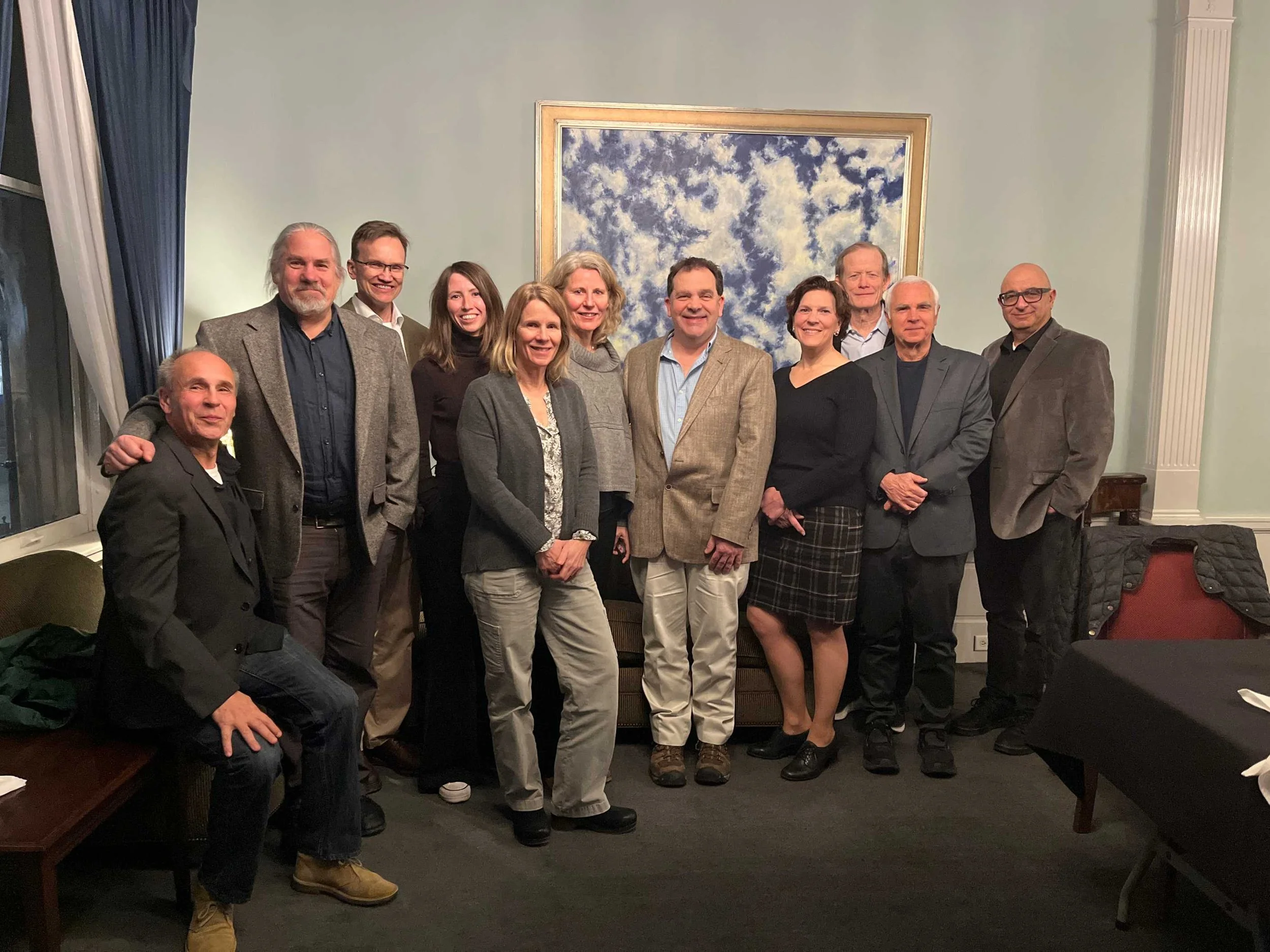By Lauren McGrath
On April 19, Hearing Health Foundation (HHF) hosted “Measuring Tinnitus and Reactions to Tinnitus” on Zoom, the latest installment of the ongoing Hearing Health Hour webinar series. Hearing Health Hour events bring HHF supporters the latest developments in hearing and balance research through the voices of our Emerging Research Grants (ERG) alum community. All sessions include an interactive Q&A with the speaker.
This webinar was led by 2012 ERG scientist Richard Tyler, Ph.D., who is professor & director of audiology in the departments of otolaryngology and communication sciences and disorders at the University of Iowa.
Tyler emphasized that tinnitus, the sensation of ringing in the ears that usually coincides with a hearing loss, can be measured. Measurement is necessary because tinnitus presents differently in individual patients. Specifically, clinicians can measure the pitch, the loudness, and the masking of the tinnitus, as well as the reactions to tinnitus and the four primary functions affected: thoughts and emotions, hearing, sleep, and concentration.
The psychoacoustical testing of tinnitus involves pitch matching. Tyler and other clinicians match the pitch of a tone to the most prominent of the pitch of a patient’s tinnitus. Even though the tinnitus might sound quite complicated like a hum or a buzz, it can usually have a prominent pitch. This figure shows the relationship between tinnitus pitch and the patient’s audiogram.
Our reactions to tinnitus depend not only on what the tinnitus sounds like, whether it's loud or soft, but also on the psychological characteristics or makeup of the individual who suffers from tinnitus. As such, the best treatments and the eventual cures for tinnitus depend on individual measurements.
Tyler’s presentation was hosted by Anil Lalwani, M.D., who is a member of HHF’s Board of Directors and the Head of the Council of Scientific Trustees, the body that governs the ERG program. “If I personally have a question on tinnitus, my first step is to do a quick search on Dr. Tyler's publications. I can usually find my answers there,” Lalwani said.
Lalwani opened and closed the presentation and led the Q&A discussion, noting that the Spring 2021 issue of Hearing Health magazine will, fittingly, spotlight tinnitus and hyperacusis. A number of thoughtful questions from clinicians, researchers, and lay supporters were addressed, including the physiology of tinnitus, correlations with COVID-19, and how cochlear implants can provide relief to tinnitus sufferers.
You can watch the captioned recording of “Measuring Tinnitus and Reactions to Tinnitus” here or below.
Tyler is also slated to present at the 28th Annual Conference on Management of the Tinnitus and Hyperacusis Patient on August 12-13, 2021. You can learn more about this event here.
Hearing Health Hour webinars are broadcast quarterly on Zoom at no cost to participants. The next session, led by Lisa Goodrich, Ph.D., will take place this summer. Newly appointed to the role of scientific director of HHF’s Hearing Restoration Project, Goodrich is professor in the department of neurobiology at the Harvard Medical School. Registration details will soon be made available at hhf.org/webinar.






These findings suggest that the ability to integrate what is seen with what is heard becomes increasingly important with age, especially for cochlear implant users.